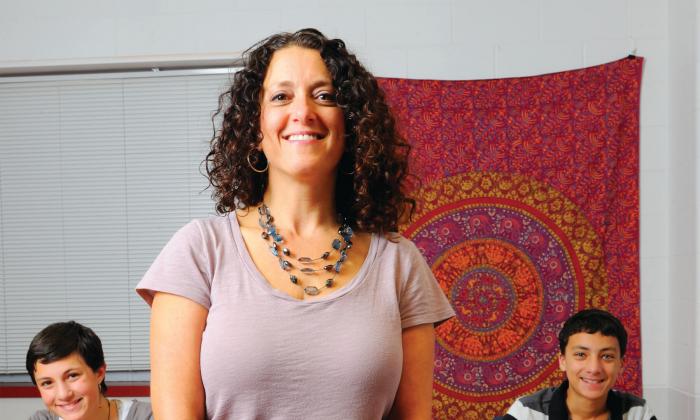
I used to be a bad girl. I was self-destructive, angry and fearless. These traits, coupled with a decent amount of intelligence, took me to all the places bad girls go. For many years, I bounced from bad decisions to bad jobs to bad relationships. My life was a mess for a long time, and all I knew how to do was make it worse. I couldn’t talk to my mother, my father wasn’t around and my friends were either victims of their own circumstances or they were busy creating better lives for themselves. I was alone for a long time, and it felt like I would drown forever.
Lifeguards come in many guises, and it’s only now that I realize most of mine were teachers. Mr. S in sixth grade was the first man who was nice to me. Looking back, I realize he was nice to everyone, but the point was he was nice to me. Mrs. Q was demanding and serious, but she yanked my latent public-speaking talents right out of me and then held me to a standard she had no doubt I could achieve. Mr. G was the curmudgeonly 10thgrade English teacher whose biting wit was matched only by his expansive understanding of both literature and adolescence. After some time, instead of feeling like I was drowning, it started to feel like I was treading water, and that didn’t feel so bad.
Most of the middle school students I teach today come from the same background I had. They have decent homes, food in the refrigerator and heat that works. On the surface, they shouldn’t have any complaints. Their schools are safe, one or both parents are around and they’ve always got the latest gadgets. They don’t have the kinds of challenges that kids in urban or rural areas face. Their lives, however, are not as charmed as they appear.
The despair, disgust and rage that plagued me as an adolescent comes in different forms in my school, but it’s the same three-headed beast I used to know so well. While it makes me feel good to hear it, I’m not surprised when my students tell me I understand them, because I really do. Though it’s been more years than I care to remember, the point is I do remember how wretched and lonely growing up can be, even in the best of circumstances. Whether it’s feeling neglected by a busy parent or isolated by a group that used to be friendly, the discomfort of growing up still pinches kids in both large and small ways. I’ve lived long enough to know that most of the things my students agonize over today will be long forgotten tomorrow. But they hurt like hell today, and tomorrow always looks impossibly far away.
So I look at them and really listen when they tell me some funny, sad or interesting stories from their lives. I let my stomach growl instead of going to lunch when a student asks my advice on some matter that may be trivial to me but is everything to her. I stop working when my current or former students come in during the only quiet time I have before or after school to tell me something they saw or read or heard about that reminded them of what we did in class. Because despite their outward appearance, a lot of these kids feel like they’re drowning in pressure from their parents, their peers and their society.
Every day, my students get the benefit of an adult who is truly there—genuinely interested in them and committed to helping them grow. They stretch themselves to meet the rigorous academic standards I set and then beam with pride when I praise them for their above-grade-level efforts. They meet and exceed my challenges, even though they’re in the foggy middle of middle school: too old to be a little kid, too young to be a full-blown teenager. So I do all I can for them—because I remember and I know. I’m the lifeguard now, and no one is going to drown on my watch.
Laura Sofen is a middle school writing teacher in Sparta, N.J.
Share Your Story
We want to hear what motivates you to get up each morning and serve students in our nation's schools. Send your 600-word submission for the "Why I Teach" column to us here.